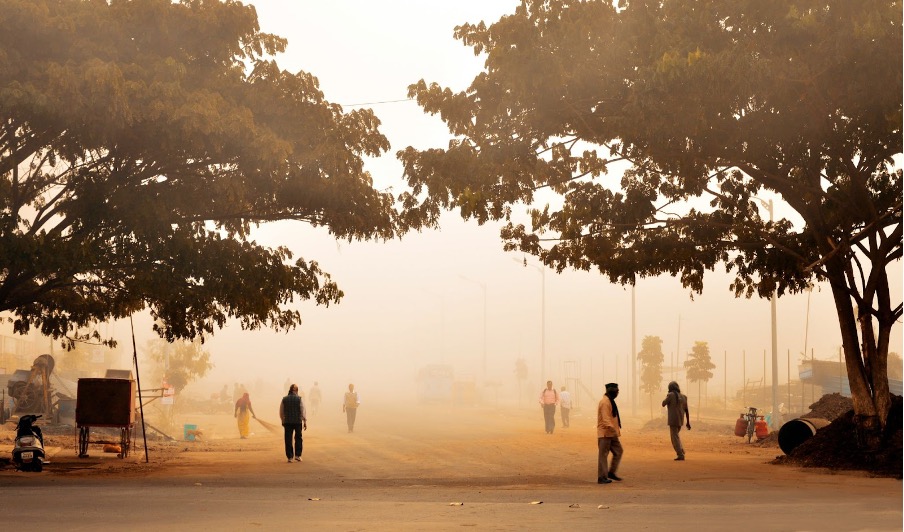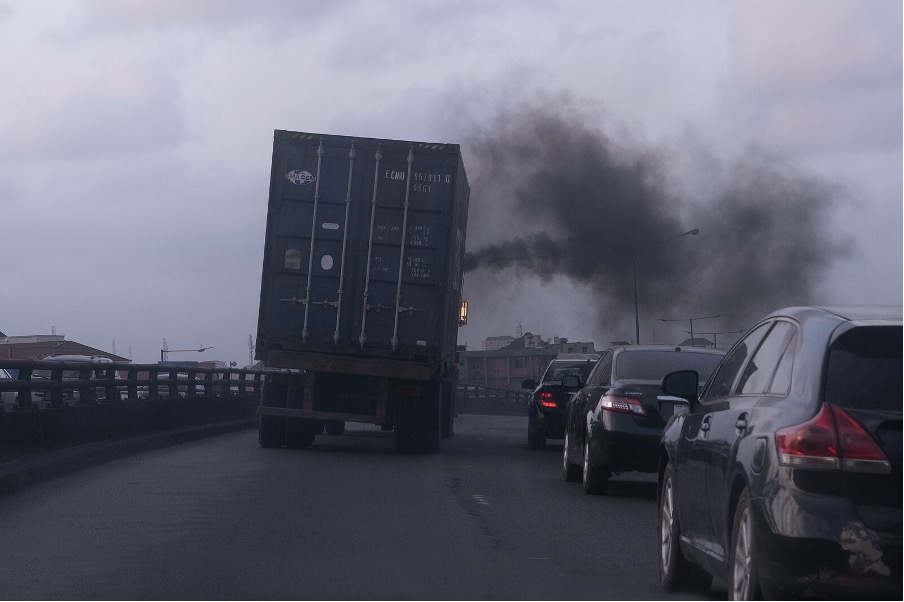
Image credit: Photo by Yogesh Pedamkar on Unsplash.
The air is gradually turning into a mixture of pollutants, damaging the atmosphere and putting individuals at high risk of respiratory diseases. Air pollution is a public health crisis, especially in industrialising regions of the world where rapid development outpaces environmental safety. The World Health Organisation (WHO) 2024 report reveals that air pollution accounts for about 6.7 million premature deaths annually, with the worst hit in low- and middle-income countries.
In many African countries, including Nigeria, several factors fuel the increasing air pollution.
Industrial activities from cement factories and oil explorations release toxic substances such as sulphur dioxide, carbon monoxide, and other particulate matter (PM), tiny harmful particles, into the atmosphere. These industrial pollutants are particularly challenging in Lagos, Kaduna, and the oil-rich Niger Delta region of Nigeria, where refineries and manufacturing plants are located.
Increasing industrialisation coupled with emissions from old and poorly maintained vehicles have also intensified air pollutants (carbon monoxide, nitrogen oxides) across cities. Traffic congestion in cities like Lagos worsens the problem by releasing even more toxic pollutants. This is transforming urban areas into hotspots for respiratory illnesses.

Image Credit: A container coursing smoke pollution on a bridge at Ojuelegba in Lagos State. Photo by Koutchika Lihouenou Gaspard, licensed under CC BY-SA 4.0, via Wikimedia Commons.
Nigeria lacks an efficient waste management system. Even the existing waste management systems are overwhelmed and fail to meet the demands of the ever-growing waste crisis. This has led individuals to burn their waste, thereby stirring up air pollution.
Exposure to these airborne pollutants is harmful to human health when inhaled, causing respiratory diseases such as asthma, pneumonia, bronchitis, and chronic obstructive pulmonary disease (COPD). National data from the Centres for Disease Control and Prevention in the United States reveal that asthma prevalence is 6.2% among children under the age of 18, having risen significantly over the past few decades, with air pollution playing a critical role.
Moreover, women, children, and the elderly are the most vulnerable to air pollution, with recent reports indicating an increase in their hospital visits. In a press release, Peter Hawkins, a UNICEF representative in Nigeria, explained, “Almost 185 children under the age of five die every day from pneumonia due to air pollution in Nigeria – the majority of them from air pollution in the household, including that from cooking over open fires or cookstoves in the home.”
Solutions to reduce air pollution are already implemented through innovative technology, such as solar lighting systems. This solution offers a reliable source of light and reduces household emissions. However, installing solar lighting systems is challenging in countless homes due to the cost implications. To counter this financial issue, the Mobile Telephone Network in Nigeria, through the Lumos Solar Inverter system, provides households with solar power at an affordable cost through a flexible payment plan.
In addition to solar power solutions, the Nigerian government has also taken steps to promote cleaner energy sources to reduce pollution from vehicles with the Presidential Compressed Natural Gas Initiative (PCNGi). This portal enables vehicle owners to convert their gasoline-powered vehicles to compressed natural gas (CNG), which is stored under pressure, and pay for the conversion in instalments.
No comments yet. Be the first to comment!
Leave a comment